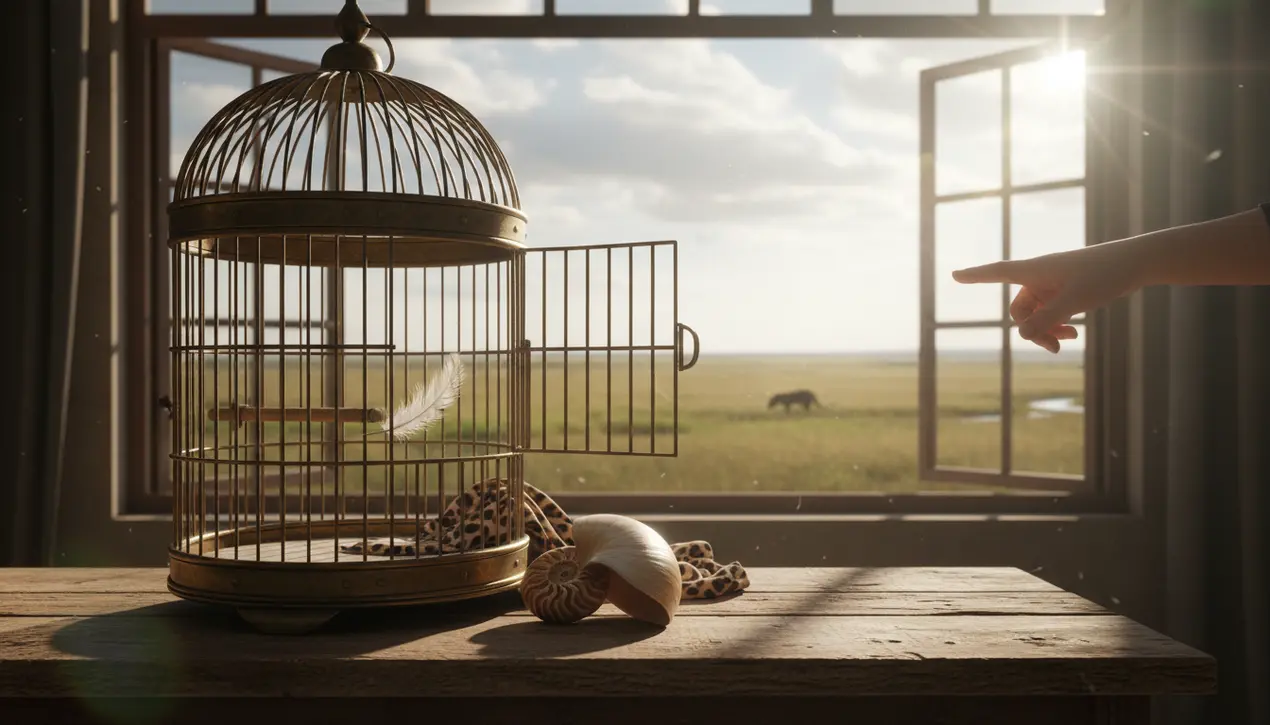
SciencebiologyEvolution and Ecology
Endless Forms of Wonder: The Nautilus, the Leopard, and Spirituality
RA
Rachel Adams
2 hours ago7 min read1 comments
We are, perhaps, the only species willingly imprisoned within a cage of our own construction, its bars forged from the relentless glow of screens, the curated prison of the self, and the seductive but hollow satisfaction of being right. From this confined space, we mistake our limited vista for the entire world, forgetting that to reclaim our wildness is to reclaim the very essence of our humanity; to squander it is to extinguish a fundamental spark of our aliveness.Few voices in the annals of natural history have offered a more potent key to this lock than that of William Henry Hudson, born August 4, 1841, and passing on August 18, 1922. Often celebrated as the Audubon of the pampas, Hudson did not merely observe nature; he channeled its very heartbeat, translating the silent, profound language of the wild into prose that could stir the soul of even the most city-bound individual.His work, particularly in volumes like 'A Hind in Richmond Park,' serves as a vital corrective to our anthropocentric arrogance, reminding us that we are but one thread in a vast, intricate ecological tapestry. His writings emerge not from a detached, scientific distance but from a place of deep, empathetic connection, a quality desperately needed in our current era of climate crisis and widespread ecological grief.Hudson understood that the leopard's rosettes are not merely camouflage but a poem written by evolution, and that the ancient, logarithmic spiral of the nautilus shell is a physical manifestation of mathematical wonders inherent in the natural world. This perspective is not a nostalgic retreat but an urgent call to action.When we sever our bond with the untamed world, we don't just lose biodiversity in a distant rainforest; we impoverish our own inner landscapes, leading to what psychologists now term 'nature deficit disorder. ' The spiritual emptiness so prevalent in modern society can be directly linked to this disconnection.Hudson’s legacy, therefore, is more relevant than ever. He stands as a precursor to modern conservationists like Jane Goodall and David Attenborough, arguing that to protect the leopard, the nautilus, or the wild grassland is an act of preserving the human spirit itself. It is a fight for the endless forms of wonder that sustain us, a reminder that our cage door has always been open, if only we possess the courage and humility to step back out into the magnificent, breathing world.
#William Henry Hudson
#naturalism
#spirituality
#wildness
#humanity
#nature writing
#editorial picks news
Stay Informed. Act Smarter.
Get weekly highlights, major headlines, and expert insights — then put your knowledge to work in our live prediction markets.
Related News
Comments
Loading comments...
© 2025 Outpoll Service LTD. All rights reserved.